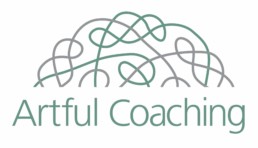Designing an Uncertain Future?
Have you heard anyone talk about “when things return to normal” or possibly “we are moving to ‘a new normal’”? Normal is defined as usual or typical.
Normal is a problematic concept in a number of ways because it is “in the eye of the beholder” and influenced by other problematic concepts like:
- Habits
- Self-concept
- The future
 When you do or think something repeatedly over time it becomes a habit. You may recall the four-step grid for developing a new habit. It starts with the awareness that what you are doing isn’t working for you in the present. That’s Unconscious incompetence. Working on a new behavior can be challenging—conscious incompetence. As the new behavior begins to become a regular activity it’s conscious competence. Finally, it’s so ingrained that you become unconsciously competent. With habits, normal is generally unconscious.
When you do or think something repeatedly over time it becomes a habit. You may recall the four-step grid for developing a new habit. It starts with the awareness that what you are doing isn’t working for you in the present. That’s Unconscious incompetence. Working on a new behavior can be challenging—conscious incompetence. As the new behavior begins to become a regular activity it’s conscious competence. Finally, it’s so ingrained that you become unconsciously competent. With habits, normal is generally unconscious.
Your self-concept is tied to beliefs and habits. You hold beliefs about yourself that influence your actions. As your actions or behaviors change your image of yourself shifts. How you previously saw the way you were as normal for you might be quite different with new behaviors.
Your future exists in your imagination. We also have collectively imagined futures, like space colonies and cures for diseases. These imaginings can become goals and perhaps come to pass. But you never really can predict what, if, or when.
The “solution” for your definition of normal is to imagine what you’d realistically like life to look like over the next months, or years, and do what you can to make that happen.
-Sydney Metrick
